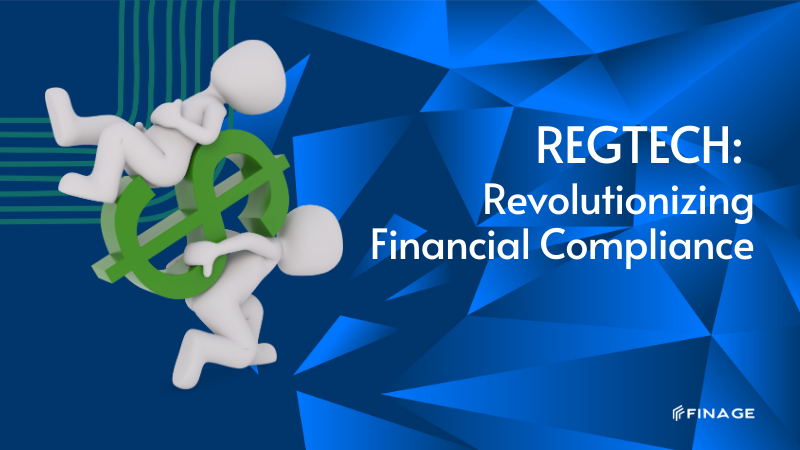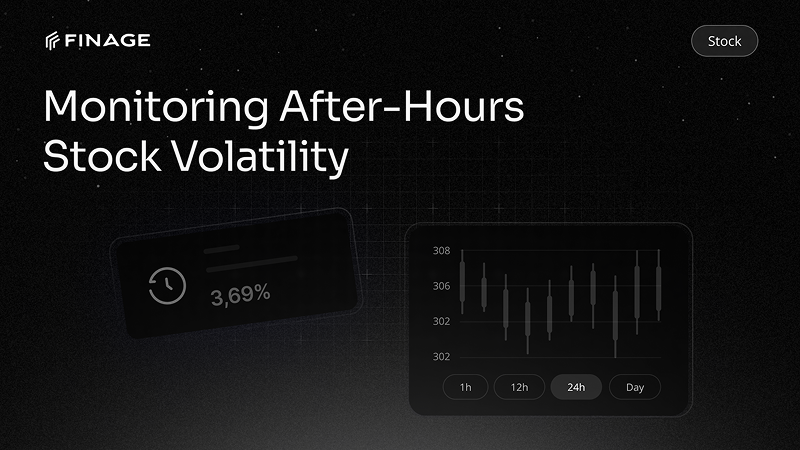RegTech: Revolutionizing Financial Compliance
5 min read • April 6, 2024

Introduction
The financial industry is currently undergoing a technological revolution, with Regulatory Technology (RegTech) emerging as a pivotal force in reshaping financial compliance. In a landscape where regulatory demands are constantly evolving and becoming more complex, RegTech offers innovative solutions to help institutions navigate these challenges efficiently and effectively. This comprehensive blog explores the transformative role of RegTech in financial compliance, its key aspects, and the future outlook.
The emergence of Regulatory Technology (RegTech) is a significant development in the ongoing technological revolution within the financial industry. RegTech is playing a crucial role in reshaping financial compliance, offering innovative solutions to address the constantly evolving and increasingly complex regulatory demands. This comprehensive blog explores the transformative impact of RegTech on financial compliance, delving into its key aspects and providing insights into the future outlook of this influential force in the industry.
Table of Contents
- Understanding RegTech
- Definition and Origins
- The Growing Need for RegTech in Finance
- Key Features of RegTech Solutions
- Automation and Efficiency
- Compliance and Risk Management
- Data Management and Analysis
- Benefits of Implementing RegTech
- Enhanced Compliance and Risk Mitigation
- Cost-Effectiveness and Operational Efficiency
- Scalability and Flexibility
- Challenges and Opportunities
- Integration with Existing Systems
- Navigating Regulatory Landscape
- RegTech in Action: Case Studies
- Implementation Success Stories
- Lessons Learned and Best Practices
- Emerging Trends in RegTech
- AI and Machine Learning Integration
- Blockchain for Enhanced Transparency
- The Future of Regulatory Reporting
- Final Thoughts
Understanding RegTech
Definition and Origins
RegTech, or Regulatory Technology, refers to a subset of FinTech that focuses on leveraging technology to facilitate and streamline compliance with financial regulations. Its origins can be traced back to the financial crisis of 2008, which subsequently led to an increase in regulatory scrutiny and compliance requirements within the financial sector.
The Growing Need for RegTech in Finance
The ever-increasing complexity and volume of financial regulations have made manual compliance processes not only burdensome but also prone to errors. As a result, there's been a growing demand for efficient technological solutions, driving the rise of RegTech.
Key Features of RegTech Solutions
Automation and Efficiency
RegTech solutions are designed to automate compliance tasks that traditionally require substantial manual effort. For example, regulatory reporting, transaction monitoring, and identity management can be automated for improved efficiency.
Compliance and Risk Management
RegTech tools assist in real-time monitoring and analysis, crucial for risk management and regulatory compliance. They provide financial institutions with the means to stay ahead of regulatory changes and adapt quickly.
Data Management and Analysis
Handling vast amounts of data is a significant challenge for financial institutions. RegTech applications use advanced data analytics to process, analyze, and report data, making compliance more manageable and less error-prone.
Benefits of Implementing RegTech
Enhanced Compliance and Risk Mitigation
By employing RegTech, institutions can enhance their compliance posture and mitigate risks associated with regulatory breaches, which can result in heavy penalties and reputational damage.
Cost-Effectiveness and Operational Efficiency
RegTech solutions streamline and automate processes, reducing the need for extensive manual labor and cutting operational costs.
Scalability and Flexibility
RegTech platforms offer scalability and flexibility, allowing institutions to adapt to changing regulatory environments without significant system overhauls.
Challenges and Opportunities
Integration with Existing Systems
Integrating RegTech solutions with existing systems can be challenging but presents an opportunity for institutions to modernize their compliance frameworks.
Navigating Regulatory Landscape
Understanding and keeping up with the ever-changing regulatory landscape remains a challenge. RegTech can turn this challenge into an opportunity by offering agile solutions that can quickly adapt to new regulations.
RegTech in Action: Case Studies
Implementation Success Stories
Case studies of institutions that have successfully implemented RegTech solutions provide insights into the practical benefits and challenges faced during the process.
Lessons Learned and Best Practices
These case studies also offer valuable lessons and best practices that can guide other institutions in their RegTech adoption journey.
Emerging Trends in RegTech
AI and Machine Learning Integration
The integration of AI and machine learning in RegTech is revolutionizing the way compliance is managed, offering predictive insights and enhanced decision-making capabilities.
Blockchain for Enhanced Transparency
Blockchain technology is being explored for its potential to add transparency and security to compliance processes, particularly in areas like KYC (Know Your Customer) and anti-money laundering (AML) efforts.
The Future of Regulatory Reporting
Emerging technologies are set to transform regulatory reporting, making it more real-time, transparent, and efficient.
Final Thoughts
RegTech, short for Regulatory Technology, is revolutionizing the financial sector's approach to compliance by introducing cutting-edge, efficient, and economical solutions. Traditional methods of ensuring compliance often involve labor-intensive processes and significant resource allocations. RegTech, on the other hand, leverages technologies such as artificial intelligence, machine learning, and data analytics to streamline and automate compliance procedures. This not only reduces the burden on financial institutions but also enhances accuracy and agility in adapting to rapidly changing regulatory landscapes.
As technology continues to advance at a rapid pace, RegTech is poised to play a pivotal role in shaping the future of financial compliance. The ongoing evolution of financial regulations necessitates a dynamic and adaptive approach to compliance management. RegTech solutions offer a real-time, data-driven approach, enabling financial institutions to stay ahead of regulatory changes and ensure compliance more proactively. With the growing complexity of financial regulations, the integration of RegTech into the fabric of financial institutions is becoming essential to navigate the intricate web of compliance requirements efficiently.
In essence, the future of financial compliance is inseparable from the continued progress and widespread adoption of RegTech solutions. Financial institutions in green finance are increasingly recognizing the value of RegTech in not only meeting regulatory obligations but also in gaining a competitive edge through enhanced operational efficiency. As RegTech continues to mature, it is expected to become an integral component of the broader strategy for managing compliance and regulatory risks in the financial industry. The symbiotic relationship between technology and regulatory compliance is shaping a landscape where financial institutions can navigate the complexities of compliance with greater ease, speed, and cost-effectiveness.
You can get your Real-Time and Historical Market Data with a free API key.
Build with us today!
Claim Your Free API Key Today
Access stock, forex and crypto market data with a free API key—no credit card required.

Stay Informed, Stay Ahead
Finage Blog: Data-Driven Insights & Ideas
Discover company news, announcements, updates, guides and more


